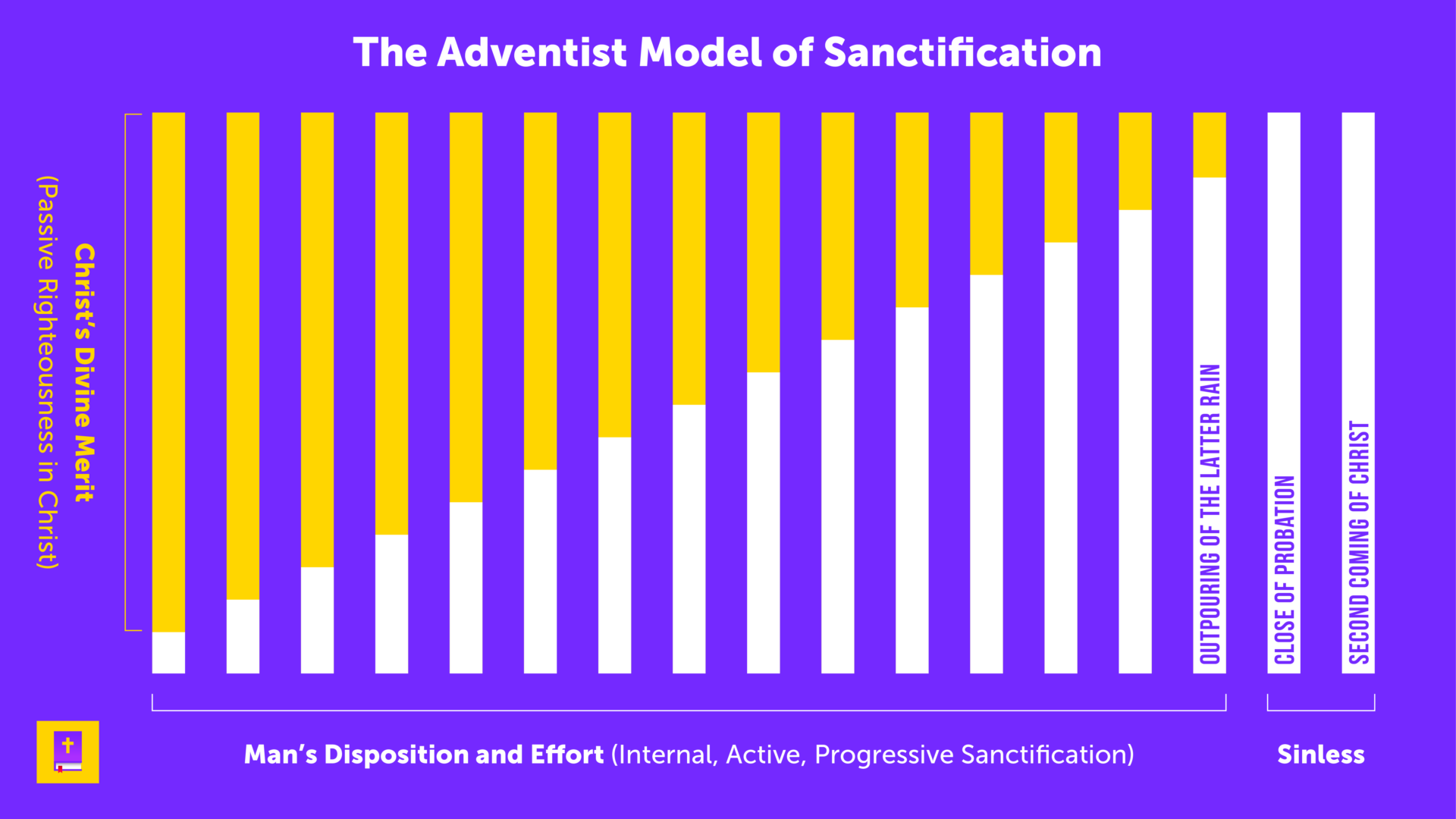Adventist Teaching: Yes
Biblical Teaching: No
The doctrinal theory of probation is a core teaching of the Seventh-Day Adventist system of theology (almost identical to the Mormon teaching). By way of Ellen G. White—who the Adventist Church believes was divinely inspired and corrects inaccurate interpretations of scripture—the Adventist Church teaches that God created mankind as a test against the accusations of Satan that supposedly started in Heaven prior to the creation of earth. This is coming downstream from their Great Controversy narrative and worldview.
In Adventist theology, Adam and Eve were put in the Garden of Eden on a period of probation to test their loyalty before they could be rendered eternally secure. And if they passed, they would be made equal with the angels. Since they fell, now all of humanity is supposedly on this period of probation. The period of probation was supposedly extended in 1844 when Jesus transitioned into a second phase of heavenly ministry—what they call the Investigative Judgment. Adventist’s believe they have been raised up by God to take a unique and special message to the rest of the world (primarily Christians) which involves this work of investigation and that the close of probation is coming soon. One must get to a sinlessly perfect state—with the help of God—before the close of this probation because man will have to stand in the sight of a holy God without an intercessor.

They will frequently try and position it as though probation is simply the idea that the opportunity to be saved is available right now but will close eventually—thus all of humanity is on probation. But this isn’t all they teach. They teach probation continues for a person after coming to Christ, which is the problematic aspect. A person is pardoned and put on parole with ones perfect obedience to the 10 Commandments being what ultimately determines if they make it to final justification (another false teaching).
The Bible doesn’t teach this. The Bible teaches that—at the point of regeneration (1 Peter 1:3, 23-35, Ephesians 2:4-5, Titus 3:5)—God makes someone a new creature in Christ (2 Corinthians 5:17). By being “in Christ,” a person is forgiven all of their sins (Colossians 2:13), seen by God as holy and blameless (Ephesians 1:4), adopted into God’s family (Ephesians 1:5, Romans 8:15, 9:26, Galatians 3:26), transferred into the Kingdom of God (Colossians 1:13, Ephesians 2:19, Philippians 3:20), justified before God (Romans 3:28, Galatians 3:11), reconciled to God (Romans 5:9-11), and have peace with Him (Romans 5:1). There’s is absolutely nothing that can no condemn them (Romans 8:1). They are not in limbo on probation with their final destiny dependent upon their perfect obedience to the 10 Commandments like the Adventist Church teaches. God does not disown children He has adopted, but disciplines them (Hebrews 12:6).
Another major biblical problem for the SDA Church’s idea on this is what the scriptures teach regarding the nature of man. The Bible is crystal clear that those in the flesh (the lost) cannot do what is pleasing to God (Romans 8:8), that humanity is by nature a child of God’s wrath (Ephesians 2:3), a hater of God who cannot seek for God or do any good (Romans 3:11-12). It’s only when God changes a person, regenerating them, that they are new creatures in Christ and even have a desire to seek God. This throws the entire doctrinal theory of probation for a loop because it’s built upon the faulty assumption that mankind is neutral.
The Adventist Church likes to attack the straw man that only Calvinists reject this idea of probation because God already knows those who are His in the Calvinist system—which the Bible very plainly teaches (John 10:27-8; 2 Timothy 2:19; Ephesians 1:4). They erroneously think Calvinists reject the concept of free will (they don’t) and that probation is a necessary by-product of believing man has free will. But this is not the case. It has to do with what the Bible teaches about justification, not free will. Even if it were, as shown above, mans will is in bondage to sin, a slave to sin and cannot do what it pleasing to God until God frees the persons will (John 8:36, Romans 6:6, 11).
When God declares a person to be righteous (justified) that declaration is final. This is classic Protestant theology rooted in what is called the Law Gospel distinction and sola fide.
The SDA Church doesn’t actually believe like Protestants on this matter—though they try and claim they do. They believe in a two tier system of justification consisting of initial justification and then final, or what they call eschatological justification—which more closely resembles the Medieval Roman Catholic teaching on justification. This is one of the primary areas that sparked the Reformation. To try and say that only Calvinist’s reject this concept of probation shows a lack of understanding around the real issue—which is whether or not justification is a single, one-time declaration or if there is a second declaration later on based on the individuals works.
Once a person is justified, the rest of the chain of salvation will follow because God is the author and finisher of our faith (Hebrews 12:2). Those that God foreknew, He predestined. And those whom He predestined, He called. And those whom He called, He justified and will eventually glorify (Romans 8:29-30). There is no second step of justification while believers are on probation between justification and glorification.
The Bible teaches that once a person is declared righteous, they have peace with God (Romans 5:1) and they receive that declaration by their faith alone in Jesus Christ alone (Romans 3:28; 4:2-3). They aren’t then on probation/parole to see how they do and it doesn’t require being a Calvinist to believe that. Calvinism is one of the SDA Church’s favorite boogeymen to pin stuff on and make it seem like only Calvinists disagree with them. They have been this way from the days of their pioneers who abhorred Reformed Theology.
All Christians—Calvinist or not—that believe in the Protestant doctrine of sola fide reject this false notion of probation/parole which is ultimately rooted in ones salvation being focused inward (anthropocentric), looking to ones own behavior and actions as to whether or not they will make it to final justification and be saved. It isn’t a God-centered (theocentric) view which sees God as the author and finisher of ones faith—declaring them justified—able to keep and sustain that individual, sanctifying them and keeping them unto the end for His own glory.
The SDA Church is—ironically—on the Roman Catholic side of the Protestant Reformation on this issue and it shows they do not understand the gospel.










